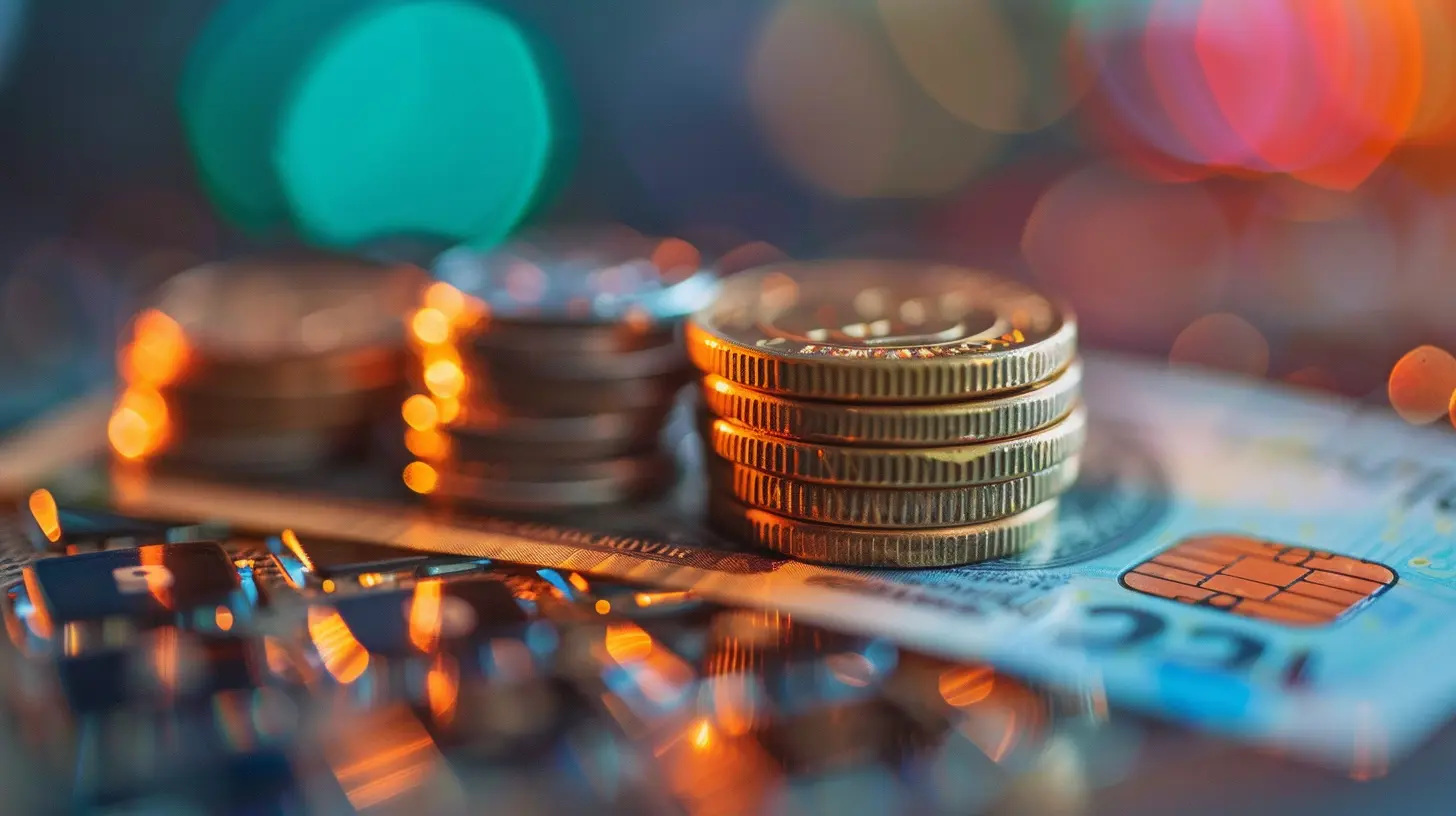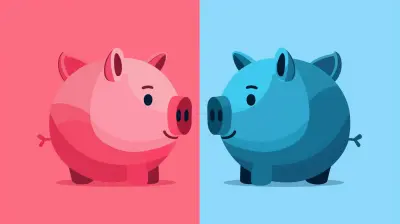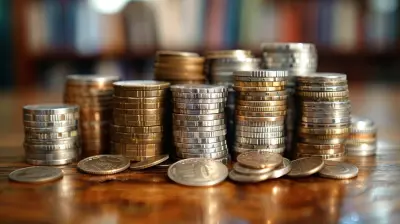1 April 2025
Let’s be honest—bad credit is like that embarrassing tattoo you got in college. It haunts you in places you least expect, like when you try to open a simple bank account. But don’t worry, financial institutions aren’t out to banish you to a cash-only life. Even with bad credit, you can still get a bank account—and I’m going to show you exactly how.
So, grab a cup of coffee, sit back, and let's tackle this together.

Does Bad Credit Even Affect Bank Accounts?
This is a fair question. While bad credit can make things like getting a loan or a decent credit card trickier, regular checking and savings accounts don’t typically require a credit check. However, here’s where things get sneaky: banks often check your ChexSystems report instead.Wait... What’s ChexSystems?
Think of ChexSystems as the bouncer at an exclusive club. If you've ever bounced checks, racked up too many overdraft fees, or abandoned an account in the red, ChexSystems keeps a record of it. Banks use this to decide whether they want to let you in or turn you away.So, even if your credit score is sitting in the basement, it's your ChexSystems history that might be the real troublemaker when opening a bank account.

Steps to Open a Bank Account with Bad Credit
Now that we know who the real gatekeeper is, let’s break down how you can still secure a bank account—even if your financial history isn’t exactly squeaky clean.1. Check Your ChexSystems Report First
Before walking into a bank and getting a soul-crushing rejection, check your own financial rap sheet. ChexSystems (just like credit bureaus) allows you to request a free copy of your report once a year.👉 How to Get It: Visit ChexSystems’ website and request your report.
If you see inaccuracies—like an old overdraft you actually paid off—dispute them! A corrected report can improve your chances of getting approved.
2. Look for Second-Chance Bank Accounts
Not all banks are ruthless. Some actually understand that people make mistakes. Many offer second-chance checking accounts, designed specifically for folks with past banking issues.These accounts might come with a few restrictions, like higher fees or no overdraft protection, but hey, it’s a fresh start!
Where to Find Them?
- Online Banks: They tend to be more forgiving than traditional brick-and-mortar banks.- Local Credit Unions: They often care more about their community than about your past mistakes.
3. Consider Prepaid Debit Cards as a Backup
If banks and credit unions keep slamming the door, prepaid debit cards can be a decent Plan B.Pros:
✔ No credit or ChexSystems checks.✔ Works like a normal debit card.
✔ Can set up direct deposit.
Cons:
❌ Usually comes with monthly fees.❌ Won’t help rebuild your banking history.
Still, if you need a way to pay bills and store money safely, a prepaid card can work in a pinch.
4. Open an Account with a Co-Signer
Got a financially responsible friend or family member who trusts you (despite your banking hiccups)? Some banks allow joint accounts, meaning their good financial standing can help you secure an account.Of course, this is a BIG responsibility—if anything goes south with the account, they’re on the hook too. Choose wisely!
5. Prove You’ve Changed Your Ways
If a bank is hesitant, show them you’re not that same person who bounced checks like they were basketballs.- Offer to open just a savings account first to prove you're responsible.
- Show proof of steady income to assure them you won’t be constantly overdrafting.
- If you have outstanding bank-related debts, pay them off or negotiate a settlement.
Sometimes, all it takes is showing a willingness to improve.

Best Banks for People with Bad Credit
Not all banks are quick to give you the cold shoulder. Here are some good options if you’ve had trouble in the past:1. Chime
- No ChexSystems or credit check.- No minimum balance requirements.
- No overdraft fees.
2. Wells Fargo Opportunity Checking
- Designed for people who didn’t qualify for regular accounts.- Comes with a monthly fee ($10), but it’s manageable.
3. Capital One 360 Checking
- Online-based, making it more forgiving.- No monthly fees and no overdraft charges.
4. Local Credit Unions
- They tend to be more lenient.- Might require you to become a member, but it’s worth it.

How to Keep Your New Account in Good Standing
Once you secure a bank account, the last thing you want is to mess it up again. Here’s how to keep it in the green:1. Avoid Overdrafts Like the Plague
Sign up for balance alerts. Better yet, disable overdraft protection if you know you have a spending problem.2. Set Up Direct Deposit
Banks love customers with regular deposits. It also ensures you always have money coming in, reducing the risk of bouncing transactions.3. Keep a Small Buffer
Always keep an extra $50-$100 in your account as a safety net. That way, an unexpected charge won’t send you into the red.4. Rebuild Your Banking Reputation
Your goal should be to eventually qualify for a standard checking account with fewer fees. Responsible banking habits for 6-12 months can improve your record.Final Thoughts
Having bad credit or a rough banking history doesn’t mean you’re doomed to stash cash under your mattress. Plenty of banks are willing to give you a second chance—you just need to know where to look and how to play your cards right.So, take a deep breath, follow these steps, and get yourself back into the financial system. Because, let’s be real, no one wants to carry wads of cash like it's the 1800s.




Christopher McKale
Navigating banking with bad credit highlights resilience; financial empowerment often begins with small steps.
April 1, 2025 at 6:40 PM